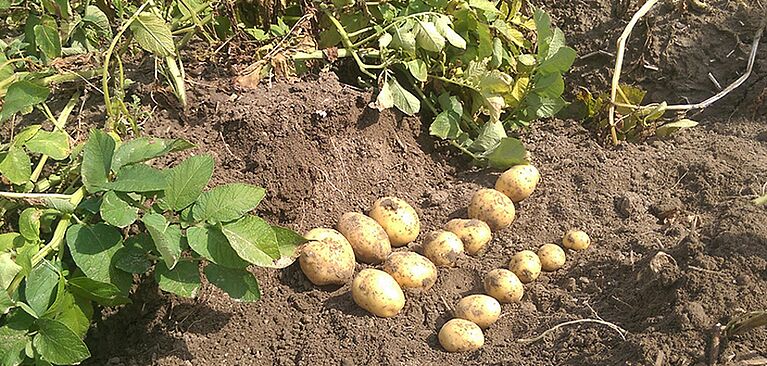After four intense and productive years of cooperation, ADAPT’s partners met in Bonn (Germany) on 30 and 31 May for the final project’s consortium meeting. During the two days, all the involved universities, research institutes and potato breeders shared the main results of their work, and discussed the missing data still to be collected from the different research activities.
Overall, the broad combination of technical expertise and sophisticated ways of data integration and application of modelling approaches has shown an important progress in the past year. The project has achieved significant results, including:
Understanding potato stress acclimation: Gained insights into how potatoes react to heat, drought, waterlogging.
Potato stress resilience: Learned how different potato genotypes handle combined abiotic stress occurring under real field conditions.
Advanced phenotyping and field trials: High-throughput phenotyping in glass houses and field trials using drones and environmental sensors.
Detailed insights into stress adaptation in potato: Monitoring critical moments during potato growth and tuber formation revealed specific signatures and molecular responses to be explored in future breeding.
Powerful data analysis pipelines: Established analysis pipelines for processing and analysis of huge data sets from field trials and high-throughput studies covering a large set of commercial potato varieties.
Using the new knowledge networks: Improved understanding of stress reactions as a basis for fine-phenotyping and marker development for future potato breeding.
More details about the results of the project will be disseminated in the next months.
ADAPT partners also visited the Bonn University Botanic Gardens, which are an important part of Bonn University’s work in research and teaching for more than 200 years and are also involved in national and international projects. During the two days of meetings, participants also enjoyed of several networking opportunities which helped to seal a strong cooperation developed through the past four years.





